All mosquitoes need water to complete their life cycle. It takes about 10 to 14 days for mosquitoes to complete their life cycle. A mosquito goes through four distinct stages: egg, larva, pupa, and adult. This life cycle from birth to death is about a month long.
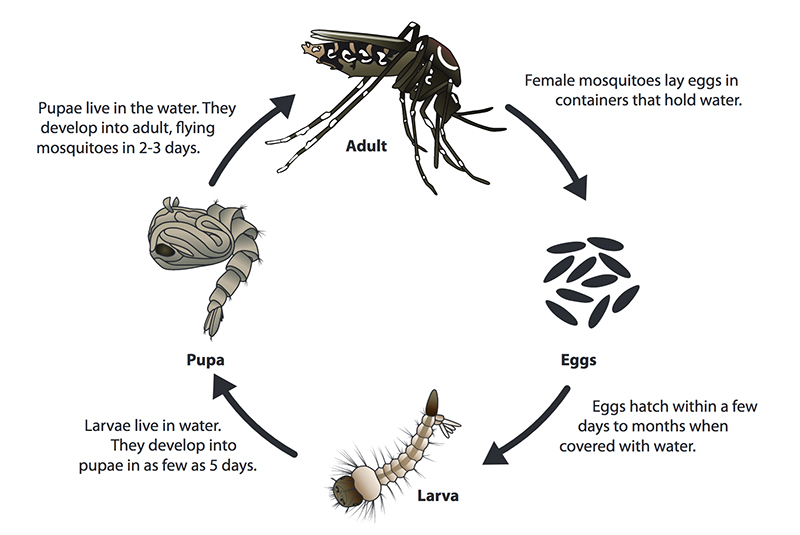
What is the egg phase of a mosquito? Eggs are laid in clusters and float on the surface of water. They can be together in rafts, groups of hundreds, or lie separately on water or flooded soil. Most eggs hatch into larvae within 48 hours or can survive several years before becoming emerged with water and hatching into larvae. The female mosquito can lay up to 200 eggs at a time and must have a blood meal before she can lay eggs.
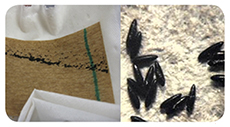
The mosquito larvae will live in water from 4 to 14 days depending on the water temperature. Larvae come to the water surface frequently to obtain oxygen. They feed on algae and small organisms living in the water.
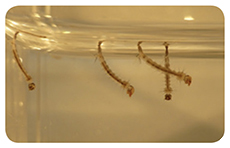
The pupa stage is a resting, non-feeding stage. Mosquito pupae must live in water from 1 to 4 days, depending on the species and water temperature. When development is complete, the pupal skin splits and the mosquito emerges as an adult.
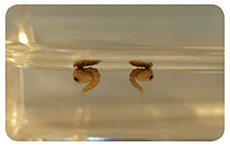
The newly emerged adult mosquito rests on the surface of the water for a short time to dry, allowing all its body parts to harden. Most mosquitoes stay very close to where they hatch, but some species of mosquitoes can fly up to 10 miles in search of a meal. Mosquitoes live in weeds, tall grass, shrubs, and other cool, damp areas. The adult female can live up to a month and the male usually only lives one week. Only the female mosquitoes bite humans, birds, horses, and other animals to get sufficient blood to develop eggs, while the males feed on plant juices only. Also, mosquitoes cannot transmit AIDS.
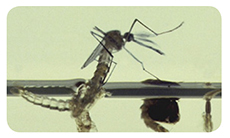
Some people attract and are bitten more often by mosquitoes than other people. Cologne, perfumes, and scented body lotions can attract mosquitoes. Dark-colored clothing is also more attractive to mosquitoes. Everyone's body is different, and some people produce odors more enticing for mosquitoes.



Click here to leave a comment or concern.